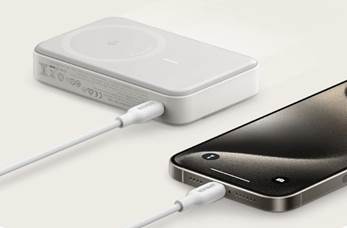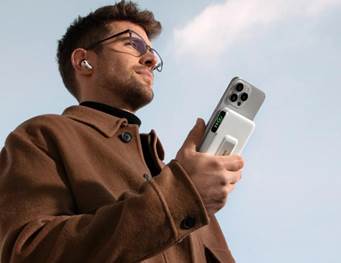Water-resistant
phones offer peace of mind in case of accidental spills or splashes. But how
long does this protection last? Understanding the lifespan of your phone’s
water resistance is crucial, as it can impact your device’s longevity and
safety. Over time, factors like wear and tear and environmental conditions can
reduce a phone’s ability to resist water, potentially leaving it vulnerable to
damage. By recognizing signs of degradation, understanding the causes, and
adopting preventive measures, users can extend the effectiveness of their
device’s water resistance. With the right care and handling, your phone can
remain water-resistant longer, safeguarding it against unexpected moisture
encounters. Now, let’s delve into what phone water resistance truly means and
how you can maintain it.

What Does Phone Water Resistance Mean?
Water
resistance in phones refers to the ability of a device to withstand damage from
exposure to water, typically indicated by an IP (Ingress Protection) rating.
The higher the IP rating, the better the phone can handle water and dust
exposure. IP ratings, such as IP67 or IP68, indicate the degree of protection.
For instance, IP67-rated phones can endure immersion in up to one meter of
water for 30 minutes, while IP68 devices can withstand deeper or longer
exposures. It’s essential to note that water resistance isn’t waterproof—phones
aren’t impervious to damage from moisture under all conditions. Understanding
this distinction is vital for consumers to avoid damaging their devices through
misuse or misinterpretation of these ratings. Devices such as the HONOR X7d
smartphone highlight this difference, offering strong resistance but still
requiring mindful handling.
Signs
Your Phone Is Losing Water Resistance
As
phones age, their protective seals and materials may degrade, leading to
reduced water resistance. A common sign of this is moisture or condensation
within the device, particularly visible under the screen or in the camera lens
area. Additionally, if you’ve noticed connectivity issues after exposure to
water or steam, this could signal weakened water resistance. Buttons becoming
unresponsive or erratic post-exposure can also indicate compromised seals.
Listening for distorted sounds when using speakers or microphones after contact
with moisture might reveal internal water damage. These indicators should
prompt a closer inspection or consulting with a professional to assess if your
phone’s water protection has weakened over time.

What
Causes Water Resistance to Degrade?
Wear
& Tear Over Time
Naturally,
frequent use and handling contribute to the gradual deterioration of a phone’s
water resistance. Everyday activities like pressing buttons, plugging cables,
or charging can cause stress to the seals and make them vulnerable to damage.
Even slight drops or bumps can subtly tweak the phone’s structural integrity,
leading to the eventual breakdown of water-repellent barriers. Moreover,
regular exposure to heat sources, such as being left in a hot car, can warp
components and degrade protective coatings over time. Constant strain on the
phone’s body, such as resting it on uneven surfaces, can accelerate seal
weakening as the phone contorts slightly with every minor force applied.
Environmental
& Usage Factors
Environmental
conditions play a significant role in the degradation of water resistance.
Humid environments can expedite corrosion or degeneration of seals, while
extremely dry conditions may cause seals to become brittle. Saltwater exposure
is notably damaging, quickly eroding protective layers and seals due to its
corrosive properties. Additionally, frequent usage around chemicals, such as
cleaning agents or incorrectly applied aftermarket phone cases, can compromise
water-resistant elements. Storing a phone near steam-producing appliances or
using it in moist settings if not rated for such exposure can significantly
reduce its water-resistant qualities, leaving it unfit to withstand even minor
water contact.
How
to Preserve Water Resistance Longer?
Avoiding
Damaging Environments & Repairs
To
extend your phone’s water resistance, begin by keeping it away from
environments that contribute to seal degradation. Avoid exposing your device to
extreme temperatures—both hot and cold—particularly around items like glass
pane cooktops or freezer areas. Ensure it doesn’t come into contact with harsh
chemicals, such as cleaning products, which can damage coatings over time.
Refrain from using your phone excessively in environments like saunas or around
pools if they are not built for such
conditions. Following manufacturer guidelines regarding repairs is essential;
opting for unauthorized repairs can compromise your device’s ability to resist
moisture.
Routine
Care & Proper Handling
Maintaining
water resistance requires routine cleaning and proper handling. Regularly
wiping your phone’s exterior with a dry microfiber cloth removes residues that
can corrode protective seals over time. Always handle your device gently,
avoiding excessive pressure on buttons or ports. Investing in quality
shock-absorbing cases can prevent structural impacts, thereby preserving seal
integrity. When charging, ensure connectors are free of debris or moisture, as
this can erode internal barriers. Implementing these practices consistently
will help prolong the effectiveness of your phone’s water-resistant features,
keeping it safer from accidental water exposure.
Conclusion
Phone
water resistance is a valuable feature, particularly for those prone to
accidental spills. Understanding its limits and recognizing signs of
degradation is crucial for maintaining device durability. Factors like wear,
environmental exposure, and improper care can compromise water-resistance over
time. By adopting careful usage habits and implementing protective measures,
phone users can significantly extend the life of their device’s water-resistant
properties. Remember, while water resistance offers security, it’s not an
invincibility shield—careful and informed handling ensures your phone remains
resilient against moisture long into its lifecycle. With consistent upkeep,
even mid-range options like the HONOR X7d smartphone
can maintain strong protection and deliver long-term peace of mind.
